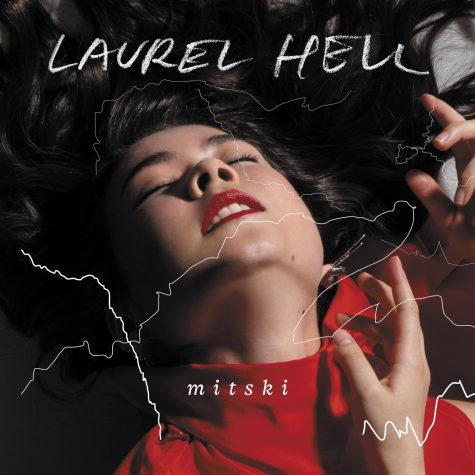Mitski: “Laurel Hell”
March 16, 2022

In 2019, Mitski announced that she was taking an indefinite hiatus from music. The indie rock superstar, who skyrocketed to fame following a string of intimate, vulnerable and increasingly successful albums, felt increasingly detached from her increasingly public persona.
“At the end of the day, I’m a woman in public, allowing myself to be consumed,” Mitski said in a recent interview with The Guardian. “I put out songs, but really what people are buying is the product that is me.”
Mitski’s newest album, “Laurel Hell,” is said to be the result of a contractual obligation to release one more album for her record label. However, Mitski didn’t turn in 30 minutes of derivative filler and retire immediately — “Laurel Hell” is accompanied by a world tour, a full marketing cycle and a new sound. Mitski’s past flirtations with rock on albums like “Bury Me At Makeout Creek” are gone, eschewed for atmospheric synths and programmed percussion.
Lead single “Working For The Knife” foregoes a chorus in favor of a linear series of verses describing Mitski’s experience with adulthood, fame and the cruelty of the music industry (“I always thought the choice was mine / And I was right, but I just chose wrong / I start the day lying and end with the truth / That I’m dying for the knife”). Dark, humming synths, discordant pianos and Mitski’s vocals mesh into a straightforward, eerie track that pairs perfectly with Mitski’s disillusioned lyrics. Despite its relative lack of structure, it still manages to feel gratifying.
Much of the album draws from a similarly droning sound as “Working For The Knife” — the album opener, “Valentine, Texas,” contrasts Mitski’s haunting voice with minimal notes that swell into a cathartic wall of synths in the second half. “There’s Nothing Left For You” expands from a dark, repetitive instrumental into a shoegazing, noisy climax, drowning out Mitski’s voice. The album’s more quiet songs gain their power from their atmosphere, but many are lacking in structure. “Everyone,” a song similar to the first half of “Valentine, Texas” but extended to four minutes, feels inconclusive and uninteresting, despite Mitski’s superb songwriting. Similarly, the dreamy “I Guess” has a beautiful atmosphere, but doesn’t go anywhere melodically.
The album also spends time exhibiting a catchier, more melodic, more pop-oriented style. Songs like “Love Me More” and “The Only Heartbreaker” evoke classic ’80s synthpop with colossal hooks and background. These songs are written in a way unique to Mitski’s sound while still retaining her characteristically introspective and anxious lyrics. “Stay Soft,” a song about the balancing act of vulnerability, features massive piano chords and a distinctive pop structure, demonstrating Mitski’s skills as a lyricist while fitting them into a catchier sound. Mitski’s clear vocals slot into these tracks perfectly, creating some of the album’s most memorable songs.
“Laurel Hell”, potentially Mitski’s last album, is simultaneously a stylistic switch-up and an ode to what made her such a great artist. Nocturnal, minimalist styles interplay with catchy pop tunes on the project, an unexpected lattice of sounds that, for the most part, goes over very well. However, the entire album isn’t a switch-up. Her distinctively pensive writing style isn’t lost in this album’s more electronic soundstage, and it’s still her music’s greatest advantage. Even if Mitski’s music might ultimately be a product, borne of commercial obligations, her character still shines through on “Laurel Hell” as strongly as ever.
